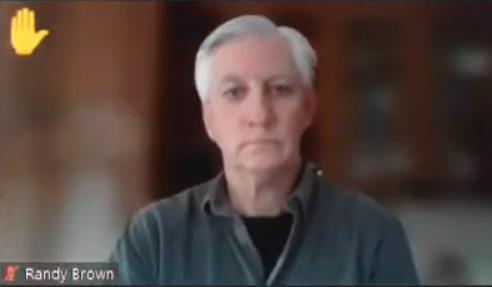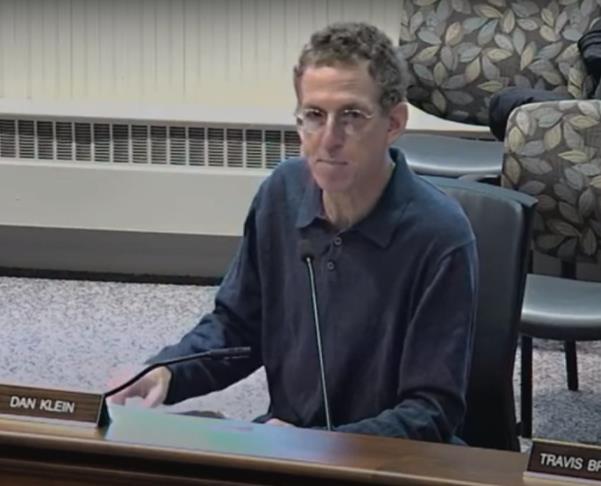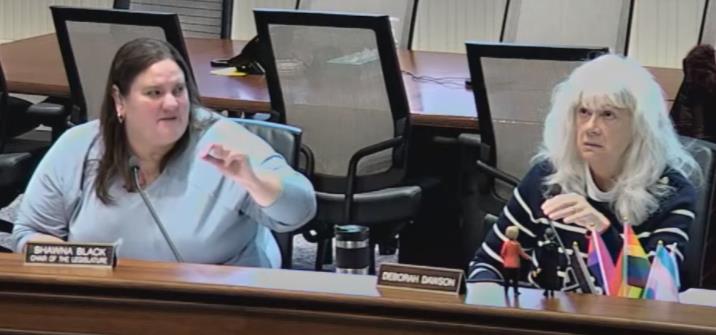Consultant’s, Committee’s Bright-Lines could kill most Recovery Fund requests
by Robert Lynch, November 25, 2022
It’s akin to a college admissions committee’s rejecting your child’s application based on her SAT scores alone, and without ever having granted her the opportunity for an interview.

Buttressed by an out-of-town consultant’s coldly-objective, rigidly mechanistic evaluation of applicant paperwork, and following a frenetically-paced gleaning of those filings earlier this month by only a handful of lawmakers, a Tompkins County advisory committee stood poised this week to toss aside a full 62 per cent of the 212 applications filed by local businesses, charities, and governments that want to tap $6.5 Million in federal assistance to be funneled through Tompkins County’s Community Recovery Fund.
And contrary to earlier expectations, the applicants initially rejected during first-round committee review may find little, if any opportunity to revive their submissions prior to when the full County Legislature casts its only vote on final funding likely five days before Christmas.
The committee’s chosen four-vote-to-two line of demarcation would exclude from further review all but one Enfield funding application, that of the Enfield Community Council for an addition to its Community Center. Proposals by the Enfield Food Pantry and the Enfield Volunteer Fire Company, as well as several Enfield Town initiatives would each be denied any further review.
“There’s no way around having to say ‘no;’ the only way is through it” Chair Dan Klein stated at the start of a three-hour November 21st meeting of the Legislature’s Community Recovery Fund Advisory Committee.
“So we need to get this program across the finish line,” the Danby legislator continued. “The individual results are not going to be what everyone wanted, but I am confident that the overall effort of our decisions is going to be worthwhile and result in positive impacts to our county.”
Klein sounds confident. But others may not be so sure.

The six-member Advisory Committee’s triage of the $32 Million of funding applications this month has so far provided little evidence to instill public confidence. In first-round vetting of the program’s bigger-ticket items November 15th, charitable initiatives occasionally topping One Million dollars were routinely dispatched in minutes, if not seconds. Rules did not require legislators to explain their votes. Most usually did not.
And left undefended, member preferences, for lack of any other reason, appeared to rest on Rochester-based MRB Group’s scoring of applicant submissions utilizing the consultant’s multi-category, 70-point scale. MRB staff, zooming into committees meetings, never explained their rationale to the committee or to us.
What’s more, the whole evaluation process laid bare the exceeding amount of influence accorded just one or two members of Tompkins County’s current, 13-person Legislature; that is, anyone who was lucky enough to gain a committee appointment. Adhering to guidelines apparently set by MRB and tacitly embraced last Monday by the committee, a full two-thirds super-majority of the committee, four votes out of six, becomes necessary to keep an application alive for further consideration. Anything less—even a tied 3-3 vote—will not. The rule became firm only last Monday. But the committee cast most of its acceptance votes a full six days earlier.
Yes, it resembles the mid-point of a golf tournament. But in this case, where only a minority of the judgment team gets to decide how many golfers get cut.
“Can you define what ‘Yes’ means, at what ‘approved’ means?” Klein asked MRB’s Michael N’Dolo nearly two-thirds way into Monday’s meeting, Klein and legislator Anne Koreman still confused over where MRB arbitrarily struck its bright line. N’Dolo replied it had set four-votes-of-six as the threshold.
“We just lopped off 20 Million, and we only have eight (Million) more to go,” Klein reacted in a moment of understated glee, Klein’s remark coming after N’Dolo’s team had advised him that by limiting review to only the 80 submissions scoring four votes or higher, a more than $30 Million application total had been trimmed to just $14 Million. “That’s progress. That, to me, is encouraging that the end is in sight here,” Klein remarked. “We can do this.”
Maybe we can. But at what cost? And with what level of discretion, compassion, and nuance? Note how Klein’s comment remained dollar-focused and not need-focused. And is it right that any one or two legislators get to hold effective veto-power; to become an application’s executioner, especially when that single lawmaker may seek to supplant community-wide value with personal preference? A rogue legislator can put her thumb on the scales of balanced need. The heart can also yield to the checkbook.
“I want to be sure that… we’re all agreed that the only ones that we are going to be voting on are the four-or-more,” Legislature Chair Shawna Black sought to clarify, as MRB’s staff outlined a complex interactive computer program it will provide committee members to rank-choice certain funding applications. “And that no one’s going to bring back a ‘three’ or a ‘two’ or a ‘one’ because that would skew all of the other votes,” Black explained.

Reaffirming the consultant’s self-assumed role in the driver’s seat, MRB’s N’Dolo confirmed that only the 80, top-ranked candidates would remain “live” on its Excel pages. So as the committee fiddles with figures in the weeks ahead, assume projects like the Food Pantry and the Enfield Fire Company will become effectively forgotten.
But maybe not forever. Newfield-Enfield’s Randy Brown, the only non-committee member attending Monday’s meeting, zoomed-in and raised his hand, Brown noticeably skeptical of the committee’s inordinate power to deny.
“If something didn’t make it past your committee, can it be brought up by the total Legislature,” Brown asked.
“The answer is yes,” Klein responded. “We’ve designed into the process that when it gets to the full Legislature, any legislator can pull out any application for discussion.”
Then Brown threw out a second question, one to which he found an answer less to his liking. The Newfield rep requested that all legislators, not just committee members, be given copies of MRB’s Excel spreadsheet so they, too, can manipulate the numbers.
Klein polled the committee. Legislature Chair Black and Budget Committee Chair Deborah Dawson were heard to shout “no” off-camera. There would be no wider sharing.
“Well, I would like to do my own,” Brown rebutted concerning the committee’s self-confined game of budgetary musical chairs. “I would think all of the legislators should have opportunity to be part of the process.”
Those words tell us much. If Enfield or Newfield interests gained short shrift in the committee’s and consultant’s paring of priorities this month—as it appears they have—expect Randy Brown to step in and lobby for those local interests December 20th when the full Legislature will likely vote on the final funding package.
****
“I have increasingly come to understand for myself that there’s an emotional component to this process that we’re engaged in,” Klein acknowledged as the November 21st meeting had just begun its three-hour journey. “It’s difficult to say no.”
Klein’s statement rings true, for sure. But it also may ring hollow if agencies and their supporters come to conclude that the decision process has become skewed, arbitrary, and callous, while it concentrates excessive power in the hands and minds of too few and with those too distant from Ithaca and its unique mindset. Klein acknowledged one applicant emailed him earlier in the day to describe the committee’s rejection of its own agency’s request as “devastating.”
Nonetheless, the chairmen did little to placate critics’ fears or welcome their participation. “We are not having privilege of the floor for this meeting,” Klein said resolvedly Monday, thereby dismissing an unnamed number of citizen requests he admitted some had filed.
So the Star Chamber nature of the Community Recovery Fund Advisory Committee continues. Members set their next meeting for December fifth. A final recommendation may issue that day. But expect neither Enfield Food Distribution’s ambitious $1.6 Million building plan nor the Enfield Fire Company’s lesser-priced offering to be put on any list the committee prepares. The Pantry and Fire Company failed to make the cut. MRB’s highly-paid talent wants no more talk of them. Their only hope lies when final legislative votes get cast five days before Christmas.
That latter meeting could prove long. It could be contentious as well. Bright lines tend to do that. Randy Brown will be there.
###

